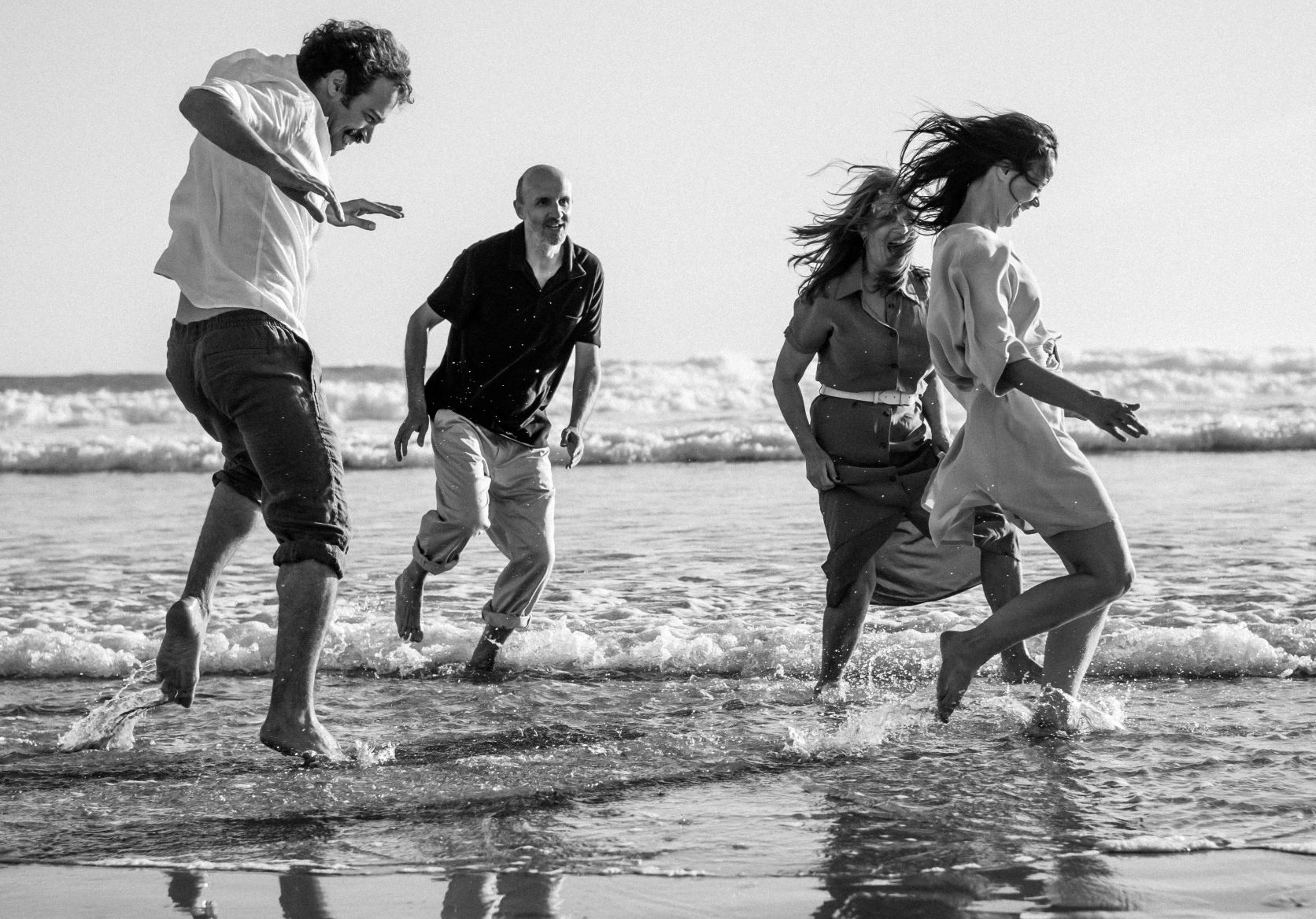Two couples, Jan and Sanne and Benedikte and Verner, meet by accident during a summer holiday at an isolated hotel on the Nordic coast. “The few guests who come here are always weird and prefer to keep to themselves”. It is from this statement, delivered at the beginning of the play, that Peter Asmussen draws the pretext to justify the apparent aphasia and dysfunction of his characters. The play, directed by João Reis, takes us through restlessness, strange melancholies and ironies, always with needs for consolation that are impossible to satisfy. “It is from this impossibility that comes the strength and the game of approach and escape of this text. What is extraordinary about this text by Asmussen is that, despite the impending catastrophe, there is still room for one last breath. As if the characters are waiting for some kind of lifeboat, someone who can rescue them from the impending shipwreck and from their sleepwalking and can lead them back to another place, even if only of illusory harmony”, writes João Reis.
A private Beach
We ask ourselves: what drives someone to repeatedly return to a same place, within a long desired summer vacation, without the slightest glimpse of something that ties us once and for all?
The place is bland and deserted, without any interest points to highlight, with a mediocre hotel and condemned to be swallowed by the ocean in the upcoming years, there are no children and “the few guests around are picky and choose to remain isolated”.
Jan and Sanne went there the first time the year they got married. And they kept on returning due to nostalgia, inertia, various incapacities which manifest in the choice repetition and the isolation it suggests. Verner and Benedikte, on their hand, ended up in there by mere chance, last minute reservation, but like the other two, end up constantly returning, like a virus that keeps on replicating and which the four feed within each other.
Maybe a place as such, being chosen by vocation, assaults us with uncertainties regarding the guests’ personalities? Or maybe not, these are perhaps small undaunted signs, launched towards our recognition? Whatever it is, those who seek or repeat a place where nothing happens are certainly saying farewell or running away from something.
A Praia has a curious effect in its unprecedented refuge dimension, summons the doubts and ghosts from the couple in the end of the line or in crisis, but it adds a melancholic exaltation reinforced by the choice of location and by the nature of its motivations, each time they return.
The melancholy here is the repetition, it’s a need for consolation impossible to achieve – paraphrasing here a title from Stig Dagerman, the suicide writer – in which the guests are a kind of shipwrecked people, sunk in champagne and amber and more or less banal conversations regarding “what happened last year”.
This sum of disagreements and mismatches, skillfully developed by Asmussen in four distinct movements, transforms this quartet, almost permanently detuned and freaking out, into a deposit of things which remain untold…
João Reis











